![]() The information provided by our expert should not constitute a diagnosis of your condition. Always consult a medical practitioner or healthcare provider for a formal diagnosis. By making use of this content, you agree that ConceiveEasy and the expert assume no liability.
The information provided by our expert should not constitute a diagnosis of your condition. Always consult a medical practitioner or healthcare provider for a formal diagnosis. By making use of this content, you agree that ConceiveEasy and the expert assume no liability.
You have been trying to conceive for a year and no pregnancy has been achieved. You religiously took your body basal temperatures each morning during your cycles, and you may have used other ways to chat such as ovulation predictor kits. Claim Your 20 Free Pregnancy Tests – Click Here
But no pregnancy. Now what?
You lost extra weight, and have been at a healthy weight for a long time. You have been eating clean, and you stopped drinking coffee, smoking and drinking. If you used to use recreational drugs, you also stopped doing any of that to help your chances of conceiving. You even took up yoga and meditation to keep your stress levels down.
But still no pregnancy. Now what?
So if you have been trying to conceive for a year by creating a great environment within yourself to sustain a healthy pregnancy and nothing has occurred YET, then it is time to see the doctor in order to be referred to a fertility clinic. It may be time to start fertility drugs or fertility treatments.

However, before any specific treatment comes into the picture, there will be tests that the doctor can perform on his or her own. If he or she chooses. Some doctors may just decide to find a recommended clinic, and refer the patient right then and there.
Whether or not the doctor him or herself performs these tests, or the fertility specialists, then this is what to expect to have done during your assessment:
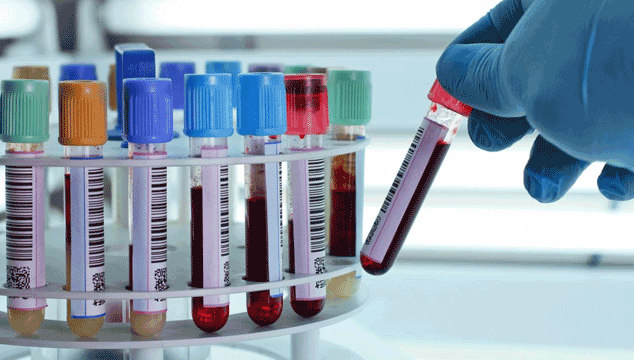
The woman has blood work done, as well as an ultrasound on the reproductive system. The structure of the uterus and ovaries are examined. A hysterosalpingogram or HSG will have to be performed on the woman to assess her fallopian tubes.
If there is no blockage of fallopian tubes present, or if one tube is non-functional, then she can still conceive on her own after other issues have been assessed. If neither tube is functioning, then in vitro fertilization will be the only way she can get pregnant.

Right now, let’s assume that structurally the woman is fine. And at the same time, the man has to have a semen analysis. As 30% of the cases of infertiity can be attributed to the man.
Whenever he has to have a semen analysis, he has to masturbate into a container that the doctor gives him. Adult magazines are given to him, if that is what turns him on. Whatever works to get the semen sample over to the doctor to examine.
You asked what happens, so there you have it!
If the sperm count, motility and morphology (shape of sperm) are normal, then there is an issue with the woman even if blood work and ultrasounds did not detect it yet. If his sperm count, motility or morphology is abnormal, whether it is one of those factors or all, then the problem is with the man’s fertility.

Either way, what many fertility specialists will end up starting with is intrauterine insemination (IUI). The only time intrauterine insemination would not be a possibility if the man has the fertility issue is if the sperm count is almost to zero (normal is more than 20 million sperm in one sample). Then IVF again will have to be performed, and a certain type. However, that will be discussed later.
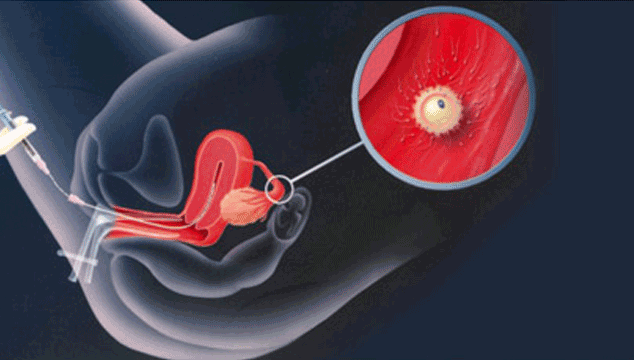
However, if the man’s count is normal, again the fertility specialist may recommend IUI just in case the problem lies within the possibility that the woman’s cervical mucus is lethal to sperm.
However, most fertility specialists want to start women on Clomid even if they are ovulating, especially if IUI is going to be the choice of treatment.

Clomiphene citrate, or Serophene, or Clomid (which is the most common name for this treatment) is a tablet given to women who are either not ovulating regularly or at all or who need to have their ovulation timed properly if IUI is going to be done.
It’s really the go-to drug for fertility docs, whatever the problem may be.
Most women who are not ovulating on a regular basis have polycystic ovarian syndrome (PCOS) which can not always be detected as many times there are no indicators through tests that a woman has this condition.
PCOS is a result of high testosterone levels in women which can cause anovulation, facial hair, high weight, and acne.
The purpose of Clomid is to trick the brain into reducing the amount of estrogen in the body, thus forcing it to release other hormones that are responsible for follicular growth and stimulation- and then ovulation.
Clomid comes in different dosages, from 50mg to 200mg and there is usually a dosage that will work just fine.
A woman usually takes Clomid for 5 days in the cycle and either starts taking it on day 2 of the cycle to day 6, or day 5 to day 9 in order to time ovulation. Follicular growth will be monitored at the clinic via blood work and ultrasounds daily. Sometimes clinics allow women to monitor ovulation on their own by using ovulation predictor kits.
Right before ovulation occurs, a woman is given a shot of HCG to help keep progesterone levels up in case conception does occur since Clomid can cause it to drop which would result in an early miscarriage.
During this time, insemination whether it is through IUI or intercourse is done to increase the chances of pregnancy being achieved.
The cost of Clomid is a measly $50 a cycle, plus costs for follow-up visits and tests however insurance usually covers these costs.
Fertility specialists do not want to use Clomid for more than 6 cycles. If no pregnancy is achieved during that time, then stronger drugs are considered.
However, if PCOS is suspected, many times fertility specialists will give these women Metformin to prevent issues with insulin getting into the way of ovulation in addition to Clomid. This mixture usually works in this situation.
If Clomid fails to work, then gonadotropin injections will have to be used to stimulate ovulation.

Gonadotropin injections are used when Clomid fails, and there are different types of these injections. Most of the time they work, and the risk with this form of fertility treatment for women is hyperovulation. That means she will end up likely releasing more than one egg, and there is a much higher chance with multiple births than with Clomid.
The cost of this treatment is $2,000 to $5,000 a cycle plus costs for follow-ups.
Insurance plans may or may not cover these costs. It all depends on the plan.

Intrauterine insemination (IUI) is done when either the sperm quality is poor, or if the cervical mucus from the woman is toxic for the man’s sperm. However, what happens is when an IUI session is about to be done, the woman has to be ready to ovulate which is usually stimulated at least $50 a cycle plus costs for follow-up visits and tests by Clomid (or other fertility drugs) and is monitored carefully each day.
When ovulation is going to happen, the man has to send a sperm sample for the specialist to wash and clean. Sperm washing removes any bacteria, dead and bad sperm from the semen and the strong sperm are left to be used for the procedure. The sperm washing process lasts for about an hour.
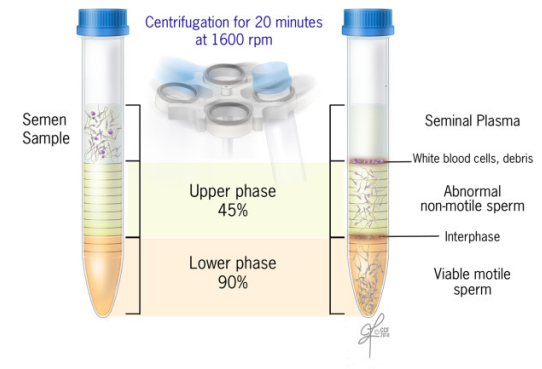
Time for a bath, sperm!
Once the sperm is ready, the woman is lying down on the table and the sperm is inserted into a catheter which is inserted into her uterus, past her cervix providing a shortcut for the sperm since less sperm is being worked with (or even if the sperm count is normal, this procedure is always done this way, hence the name).
The woman has to lie down after it’s done for a half hour so the sperm has the opportunity to reach the fallopian tubes.
The cost of IUI is between $300 to $700 per cycle. It is more costly if there are two attempts done over 24 hours. Some insurance plans may cover some of the costs
Fertility specialists will usually do 6 attempts of IUI. If pregnancy does not result, then IVF will have to be looked into.

When a couple has tried fertility drugs and IUI but no pregnancy has been achieved, then they end up having to resort to in vitro fertilization or IVF, and this is the last resort when it comes to achieving a pregnancy with their own sperm and eggs.
There are different types of IVF procedures as well. However, they always involve the woman having to take gonadotropin injections and other medications, which means they have to be poked and prodded daily. The husband has to give these injections as well in her behind.
The purpose of her having to go through intense treatments is that she releases plenty of eggs so that they can be retrieved.
She will be going through blood work and ultrasounds daily to measure the follicular development and maturation of eggs. Once eggs are ready to be retrieved, then she will get ready to have that happen.
Usually the first step is for her to lie down on a bed in table in the lab room. Then strong anesthesia medications are given through an IV. Therefore the woman is sedated during the retrieval process. She won’t feel pain, nor remember anything about the time.
She will be under ultrasound guidance, and a needle is passed through the top of the vagina to get to the ovary, and then follicles will be retrieved. There may be as many as 15 follicles mature enough to be retrieved.
However, the risk with more follicles being matured can cause severe pain and other complications from a condition called hyperovulation stimulation syndrome. She will be monitored for that as well.
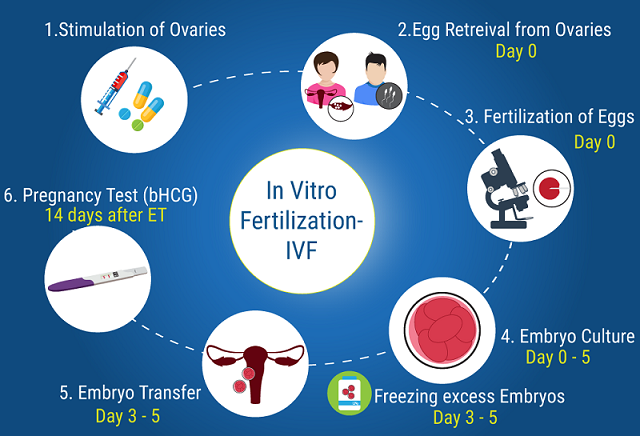
When all of the follicles have been taken out, the woman wakes up quickly. She is then monitored for an hour very closely. Then she is discharged home.
Recovery is usually straightforward with mild to moderate cramping for a few hours. Some women take pain killers after they are discharged from the clinic on that day.
However, during that time as well, the man gives sperm samples to be used for the procedure.
The sperm and eggs are put together in the lab about 4 hours after egg retrieval so conception has a chance to happen.
In cases of low sperm counts or quality, the sperm is washed and good quality individual sperm is injected individually into eggs.
This procedure that involves individual sperm that must be injected into eggs is called Intracytoplasmic Sperm Injection ICSI.
Whether embryos are fertilized ICSI or the most common method, the embryos are cultured in the IVF lab for 2-5 more days before one or more is put inside the uterus. That is called the embryo transfer procedure.
After that, the couple must anxiously wait for 2 weeks to find out if a pregnancy has taken or not.
If pregnancy is achieved, then there is a significantly higher chance of twins, even if no more than one embryo was placed. Sometimes embryo splitting can happen during IVF procedures for unknown reasons, which creates identical twins.
If multiple IVF attempts fail, then the couple will either look into surrogacy, hiring a woman to carry their embryo, donor eggs or sperm, or even adoption.
The cost of IVF ranges from $8,000 to $15,000, and some insurance plans may cover some parts of it.

When a couple is going through fertility treatments, they will be strained and stressed financially, mentally and emotionally. Whether they are going through IUI treatments or IVF, it’s a tough ordeal.

Not only is it physically draining for the woman, and but it is emotionally draining for the couple. They wonder if they are wasting money on failing attempts, and it can be difficult for them to stay positive during the time due to past disappointments and devastations.
Counselling is a must when a couple is undergoing fertility treatment and many fertility clinics provide professional counselling as well.
It is important for couples who are undergoing any kind of fertility treatment to know that they are not alone, and they are encouraged to reach out to others who are facing the same thing so they receive comfort.
If you must go through fertility treatments after a year of trying, stay strong and positive because the odds are in your favor to conceive that baby whichever method it must be done.
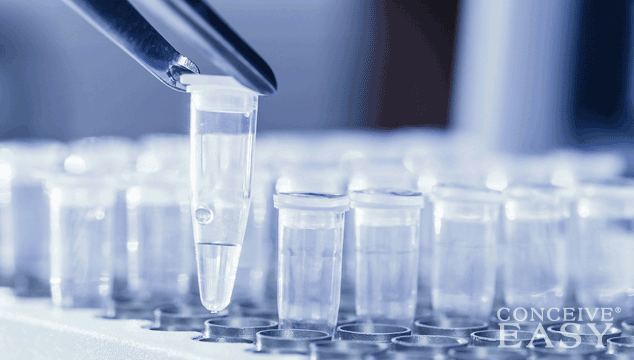









Comments